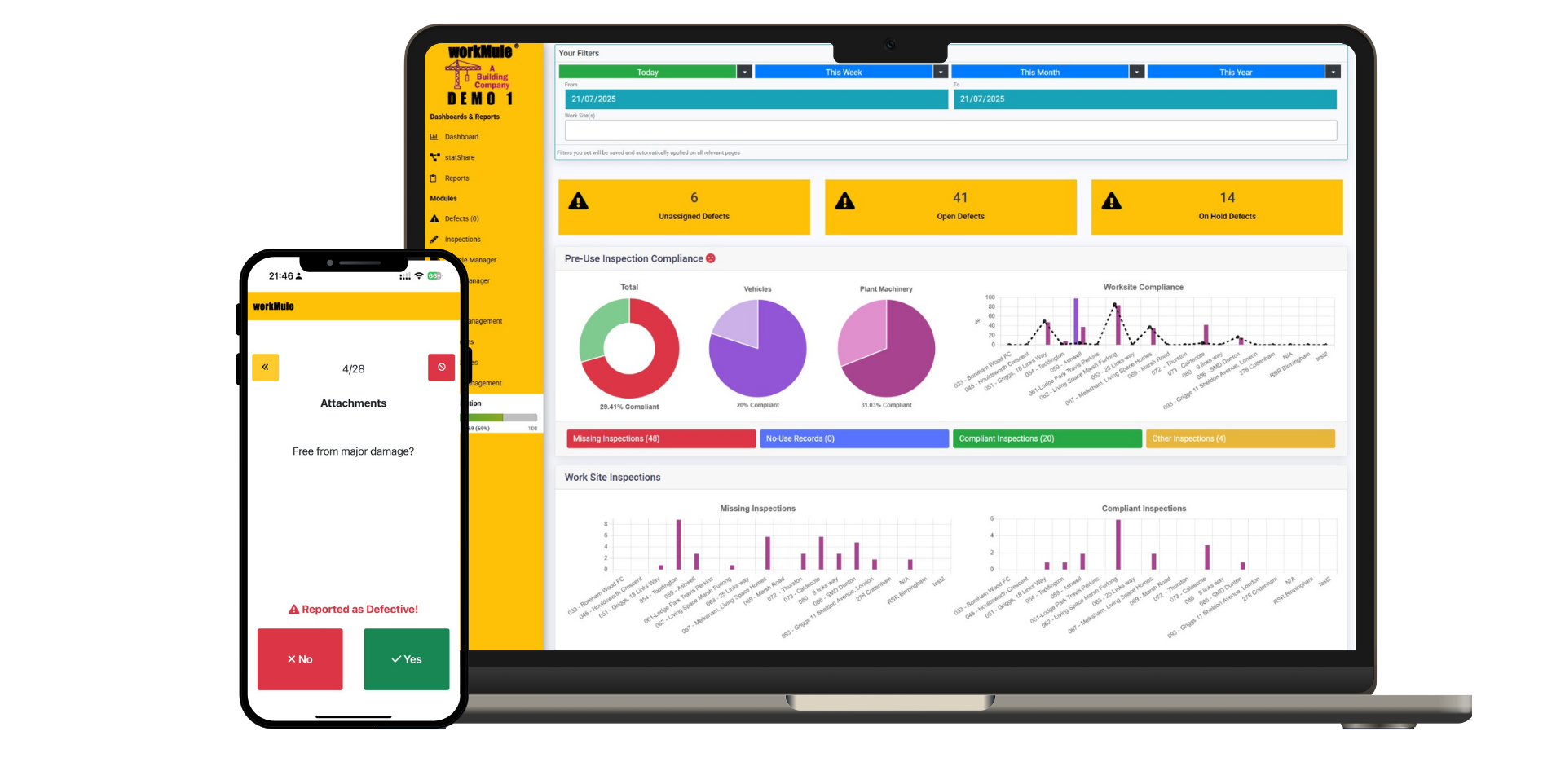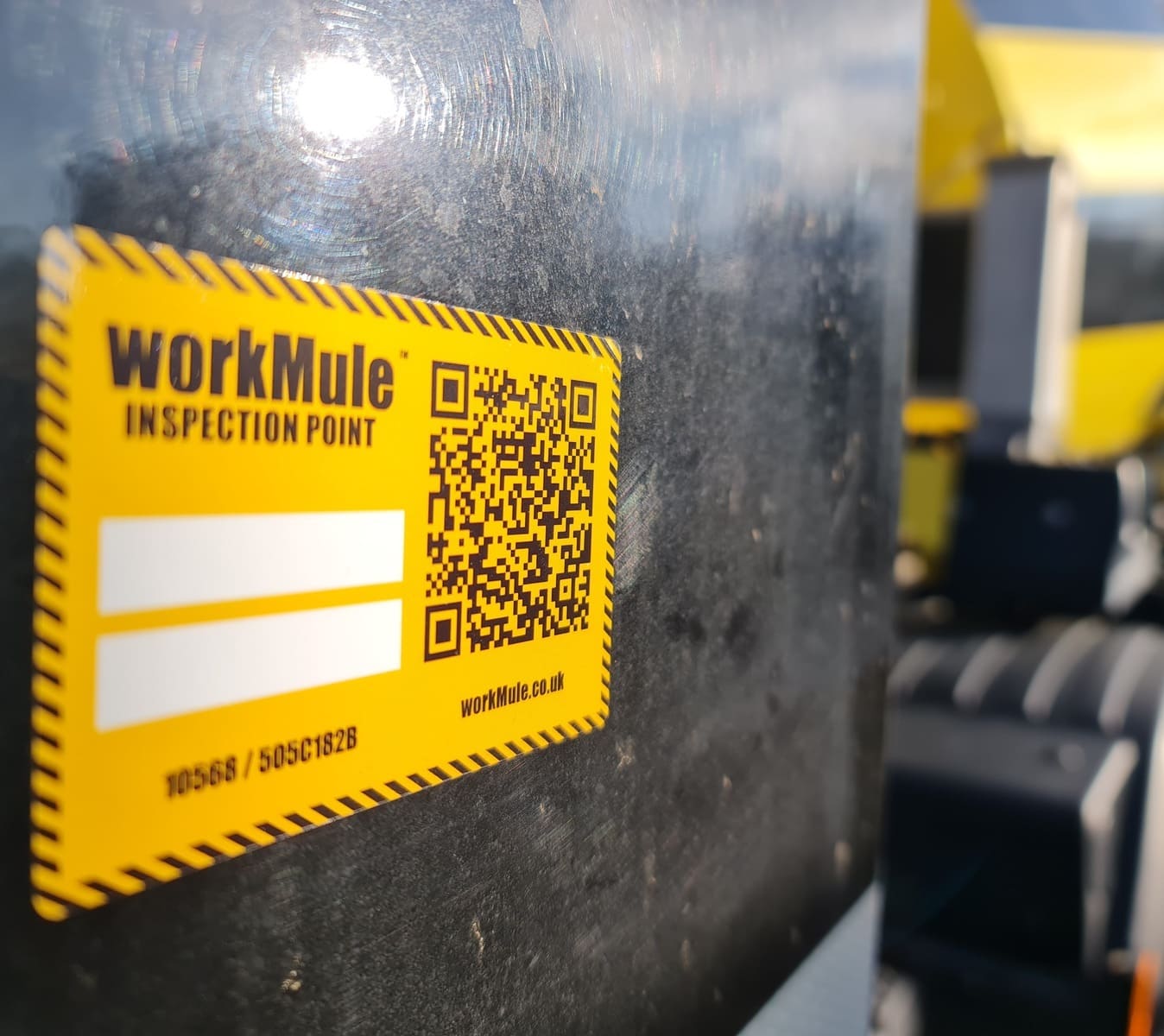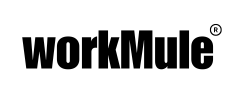UK’s Most Recommended Plant Inspection Software
Inspection Software Built for Safety & Simplicity
Unlimited inspections, users, and assets — from just £0.55 per asset, per week.





Simplify Pre-Use Inspections & Make Compliance Easy. Zero Paperwork
See all your asset inspections and defects on one simple dashboard. Filter by site, pull and share any inspection in seconds, spot trends and high-risk sites for non-compliance
-
Unlimited Users at no extra cost
-
Real-time Defect Tracking
-
Exportable Compliance Reports
-
Fully Customisable Checklists
Simplify heavy machinery inspections and ensure full compliance with zero paperwork.
Whether you're managing excavators, loaders, or cranes, workMule helps you stay audit-ready across all sites.
Fully customizable
Instant notifications
All sites in one view
Always compliant
Bring structure and visibility to your smallest—but most used—assets.
From drills and saws to handheld grinders, workMule lets you inspect, monitor, and track defects for every tool in your fleet.
Works offline too
No tool left behind
Quick inspections
Better visibility
Keep your site vehicles safe, compliant, and on the move.
Log pre-use inspections, manage maintenance tasks, and view defect trends across vans, pickups, and specialized vehicles—all from one dashboard.
All vehicles tracked
Safety first
Always up to date
Predictive insights
Already powering 500+ UK sites and 1 million inspections
Inspections Completed
Positive Feedback from Users
Increase in Defects Reported
UK Sites
Faster Issue Resolution
Tons of Paper Saved
Marketing Solutions
Drive compliance. Reduce risk. Cut costs and improve accountability across your workforce
From pre-use checks to defect logging, workMule simplifies every step of plant inspection compliance:
-
Asset Tracking
-
Visual Inspections
-
Defect Reporting
-
Custom Checklists
-
Offline Mode
-
Certificate Storage


Predictive Analytics
Use data to drive smarter decisions
Use actionable analytics to:
-
Identify trends in faults
-
Monitor team compliance
-
Flag high-risk sites
-
Share audit-ready reports in one click
Seamless Tool Integration
Built on Site, For Site.
From national housebuilders to independent groundwork crews — if you have assets, workMule works for you.
workMule is built to serve everyone from your boots-on-the-ground workforce to senior compliance officers.. Our platform supports:

Housebuilders
Keep sites compliant, safe, and on schedule

Groundworks Teams
Catch faults before breakdowns halt progress

Civil Engineering Firms
Streamline audits and defect reporting

Contractors of All Sizes
From SMEs to enterprise-scale operations
Customer Testimonials
Hear from our satisfied customers
See how workMule is transforming inspections and compliance across UK construction sites.
The app transformed our inspection process — we save time, reduce risk, and have total oversight. It’s helped us stay compliant and avoid costly site delays.

James Stewart
H&S Advisor, Harkmac
Faster Issue Resolution
We now track equipment status in real time, stay ahead of issues, and keep both trainers and trainees protected. It’s streamlined everything.

Daniel Carr
MD, Construction Training Services
Positive Feedback
Flexible Pricing Plan
Increase Compliance,
Save Time, Save Money
How many assets do you require pre-use inspections for per week?
Pay Monthly
Pay Yearly
Prices displayed are ex VAT. VAT will be added on top of the displayed price.
